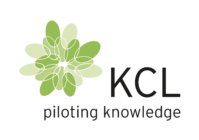How to Enhance Adhesion on Biobased Surfaces with KCL Biowax
Understanding the Importance of Adhesion on Biobased Surfaces
Adhesion is a critical factor in the performance and durability of biobased surfaces. Whether you are working with paper, board, or other biobased materials, ensuring strong adhesion can significantly impact the quality and longevity of your products. Poor adhesion can lead to issues such as delamination, reduced strength, and compromised functionality. Therefore, enhancing adhesion on biobased surfaces is essential for achieving optimal results in various applications.
Biobased surfaces, being derived from natural materials, often present unique challenges in terms of adhesion. These surfaces can be more porous and less uniform compared to synthetic alternatives, making it difficult for adhesives to bond effectively. This is where innovative solutions like KCL Biowax come into play, offering a sustainable and efficient way to improve adhesion on biobased surfaces.
In the context of the growing emphasis on sustainability and eco-friendly practices, finding effective methods to enhance adhesion on biobased surfaces is more important than ever. By using products like KCL Biowax, you can achieve superior adhesion while adhering to environmentally responsible practices.
The Science Behind KCL Biowax
KCL Biowax is a water-based dispersion of natural wax, stabilized by microfibrillated cellulose (MFC). This unique formulation leverages the properties of MFC to improve stabilization and create optimal rheology for the dispersion. The MFC not only enhances the stability of the wax dispersion but also acts as an adhesion promoter, making it highly effective for use on biobased surfaces.
The aqueous wax dispersion can be used to increase the hydrophobicity of paper and board products at very low dosages. This is particularly beneficial for applications where moisture resistance is crucial. The wax formulation is safe to use and FDA approved for use in food contact applications, ensuring that it meets stringent safety standards.
Moreover, the overall formulation of KCL Biowax is classified to be outside of the single-use plastic directive (SUP), offering a unique solution for natural hydrophobization. This makes it an ideal choice for those looking to enhance adhesion on biobased surfaces while maintaining compliance with environmental regulations.
Step-by-Step Guide to Applying KCL Biowax
Applying KCL Biowax to enhance adhesion on biobased surfaces is a straightforward process. Here is a step-by-step guide to help you achieve the best results:
Step 1: Surface Preparation
Before application, thoroughly mix the KCL Biowax dispersion to ensure uniform consistency. This can be done using a mechanical stirrer or by shaking the container vigorously. Proper mixing ensures that the MFC and wax are evenly distributed throughout the dispersion.
Step 3: Application
Allow the applied dispersion to dry and cure completely. The drying time will vary depending on the ambient conditions and the thickness of the applied layer. Ensure that the surface is fully dry before proceeding with any further processing or use.
Benefits of Using KCL Biowax for Biobased Surfaces
Using KCL Biowax to enhance adhesion on biobased surfaces offers several significant benefits. Firstly, it provides a sustainable solution that aligns with eco-friendly practices. The water-based dispersion and natural wax components ensure that the product is environmentally responsible and safe to use.
Secondly, KCL Biowax improves the hydrophobicity of biobased surfaces, making them more resistant to moisture and other environmental factors. This is particularly beneficial for applications in the packaging and food industries, where moisture resistance is crucial for maintaining product integrity.
Additionally, the use of microfibrillated cellulose in the formulation enhances the adhesion properties of the wax dispersion. This results in stronger and more durable bonds, reducing the risk of delamination and other adhesion-related issues. The FDA approval for food contact applications further underscores the safety and reliability of KCL Biowax.
In conclusion, enhancing adhesion on biobased surfaces with KCL Biowax is a highly effective and sustainable solution. By following the step-by-step guide and understanding the science behind the product, you can achieve superior adhesion and improved performance for your biobased materials. Embrace the benefits of KCL Biowax and take your biobased surface treatments to the next level.
